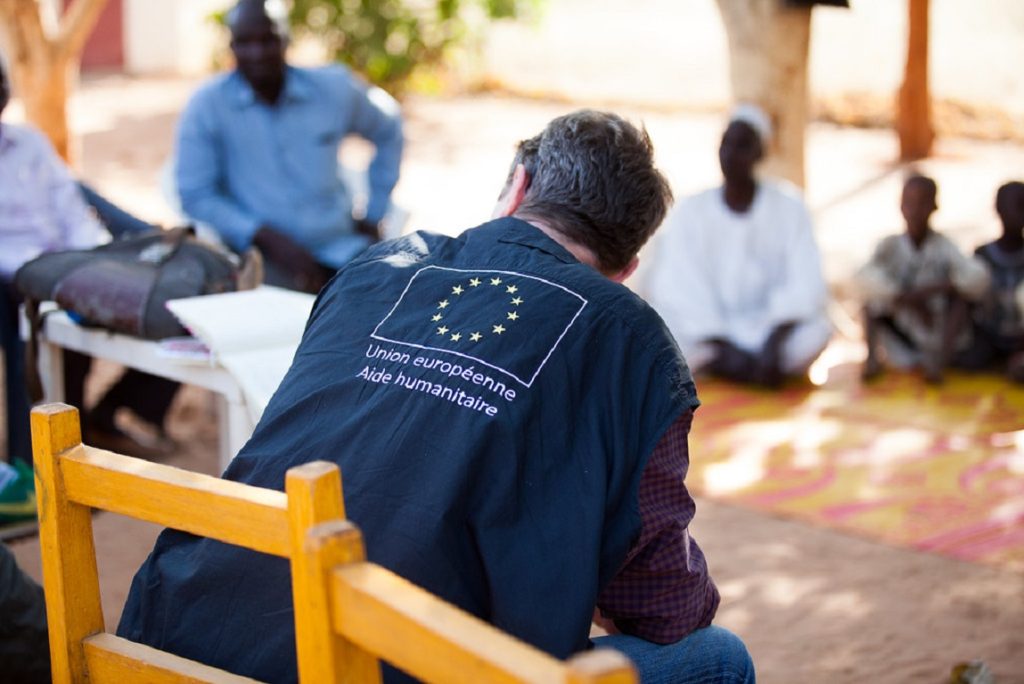Services
A multitude of services are provided by the network to the interested parties:
Advocacy
HNE is trying to promote respect for the International Humanitarian Law (IHL), while bringing to the forefront the voices of vulnerable people and helping them to obtain access to humanitarian assistance.
To do this, HNE exploits any means to communicate the right messages to the right people at the time of need. Humanitarian situations causing adverse impacts on populations, and ensuring voices of the communities and affected populations are brought to the forefront.Publishing research, public speaking, media campaigns and commissioning are only some of the activities undertaken by HNE. The main goal is to influence attitudes, systems and structures to adopt practices and policies that will protect affected populations.
Audits
Based on internationally accepted standards, HNE, upon request, can perform necessary audits to organisations that implement humanitarian aid actions.
Through audits we check (i) the conformity with the criteria set up in partnership agreements, (ii) if the systems of the audited organisation are fully in order, and (iii) the procurement of supplies and services necessary for the implementation of humanitarian actions. Necessary recommendations are made based after the auditing process.
Camp coordination and camp management
The camp management coordinates assistance and protection to all types of community displaced persons, meeting the needs and protecting the rights of those displaced. Camp management activities are based on national and international laws and standards and the participation of displaced persons.
The Camp coordination creates the humanitarian environment to effectively deliver protection and assistance. Action frameworks include standards setting, contingency planning and information management. Close contact with local actors and organizations is required for the effective management.
The Camp management organizes and monitors the delivery of, and access to, services while ensuring the maintenance of available infrastructures. Another task is related to the organization of community participation. Through this, the displaced people can participate in decision-making and can influence the design of humanitarian programmes at all phases.
Capacity building
Through capacity building, organizations and communities can develop and strengthen the skills, abilities, processes and resources they need to adapt and thrive in a rapidly changing world. HNE can support organizations and communities in a series of actions:
- Adjust adequately to emerging or new situations in a given domain;
- Evaluate and/or adopt new approaches of response and working;
- Improve the process and quality of response;
- Adopt innovations;
- Strengthen cooperation.
Sharing of knowledge, expertise and good practices is the key to react better and faster to emergencies. A sustainable transformation is supported by HNE.
Moreover, HNE, in line with the SDG 17, supports:
- Adoption of technology and innovations in the least developed countries;
- Data collection and analysis;
- Monitoring.
Consulting
HNE offers consultancy services to both organizations or individuals relevant to a range of topics (e.g., training courses in humanitarian and development fields, delivery of key talks, conduction of surveys, field visits, assessment analysis, programmes’ assessment, delivery of policy documents, research on demand, evaluation of innovative approaches and technical solutions, reports on recent trends in the humanitarian sector, etc.).The HNE consulting team collaborate with all key stakeholders (e.g. NGOs, private organizations, UN agencies, governments) to discover transformative solutions to humanitarian crises.
Fund Raising
Seeking and gathering voluntary financial contributions by engaging individuals, businesses, charitable foundations, or governmental agencies is part of our services.
We can organize and facilitate the fund raising through crowd funding or using our wide network of collaborators, partner organizations, donors, etc.
Development of innovative solutions
The interdisciplinary network of HNE covers a wide range of technologies and expertise. Thus, it is able to form appropriate teams to design and develop innovative solutions and technologies to address many aspects of humanitarian crises.Upon request, we can design and deliver a custom-made solution for your humanitarian problem. Combined expertise from the healthcare, environment, IT, climate change, disaster and preparedness management, and project management sectors provides a foundation for every innovation. The latest technologies, such as the Internet of Things, Big Data, Cloud Computing, etc., are in the hands of the HNE team to develop innovative mobile health solutions, early warning systems, smart sensors, and many others.
Field investigations
The HNE teams can deliver field investigations in places facing humanitarian crisis. The wide network and the distributed partner organizations around the world can assure the immediate delivery of field investigations with adequate quality.
All reports are passed through our Quality Assurance mechanism to guarantee the desired level of quality to the end customer.
Management and Administration
The HNE can facilitate the management and administration of projects related to humanitarian crisis. Our experts meet the highest quality standards and have a proven record of top-flight managerial experience in both national and international projects. It is our desire to provide support or undertake the responsibility for managing complex humanitarian projects.
Needs assessment
Needs assessments is a vital process for gathering resources and information in order to take appropriate decisions. Based on the collected needs the right allocate of resources is planned in order to meet the needs of the affected community and population. The needs assessment can identify the most important goals of the affected community, in order to plan any technical assistance or to prepare communication strategy, advocacy messages or to design the appropriate assessment methodology, etc. A vital scope is to reflect the size and the nature of the crisis and to produce timely analysis. Various valid and reliable methods may be used to collect and analyze information and data. Review of existing data, collection of new data, cleaning of data, disaggregate data are only some of the processes during the needs assessment phase


Public awareness
Our network delivers talks and produce publications in order to raise awareness of the general public in the various humanitarian issues.
The participating members are distinguished professionals and scientists from academia, the research community, private organizations and key public authorities.
Οur ultimate goal is to raise awareness and mobilize the wider community to respond immediately in cases of urgent humanitarian crisis.
Research
The core team of experts in our network comes from the academia and the research community with a great record of publications in a variety of themes that lie under the wider areas of humanitarian crisis. The interdisciplinary approach followed in all processes deliver the desired top quality of research outcomes. Indicative fields of research cover early warning systems, simulation strategies, sensors, mhealth solutions, IT solutions for vulnerable communities and populations, state of the art strategies for developing sustainable camps, analysis of environmental factors, climate change, and many others. In addition, our team works to develop and evaluate modern undergraduate and postgraduate study programs in humanitarian fields, like the one of humanitarian engineering.
Technology assessment and evaluation
The HNE provides a unique opportunity to evaluate and assess any technological solution in any stage. The early identification and assessment of eventual impacts of the provided technology and applications can serve policy making and decision making. Medical, social or environmental impact assessment falls under the technology assessment process. We provide consultating and support in all phases (design, development and assessment) of a technological innovation. A crucial part is the evaluation of the technological solution in the context of national regulatory agencies. The ethics of the technology is also assessed in order to comply with accepted standards and regulations (e.g. General Data Protection Regulation, etc.).
Our experts have significant experience and knowledge and have developed valid and reliable methodologies and scales for assessing technological solutions.
Training
One of the key parts of HNE is the development, evaluation and delivery of on-demand training courses in the fields of humanitarian crisis.
We have already delivered a large number of educational materials, assessment tools and pilot training to different populations and disciplines in the field of humanitarian engineering.
The deep and multi-year knowledge of academic requirements in different continents, regions and disciplines guarantees the top quality of the training services and tools provided



